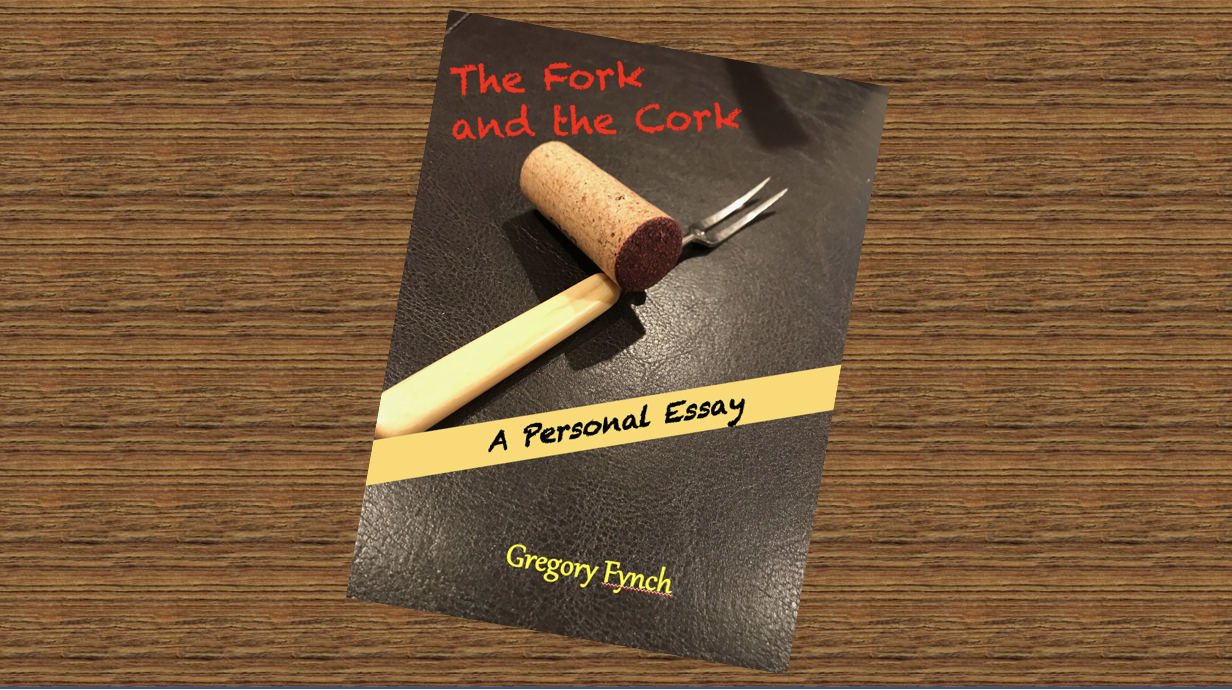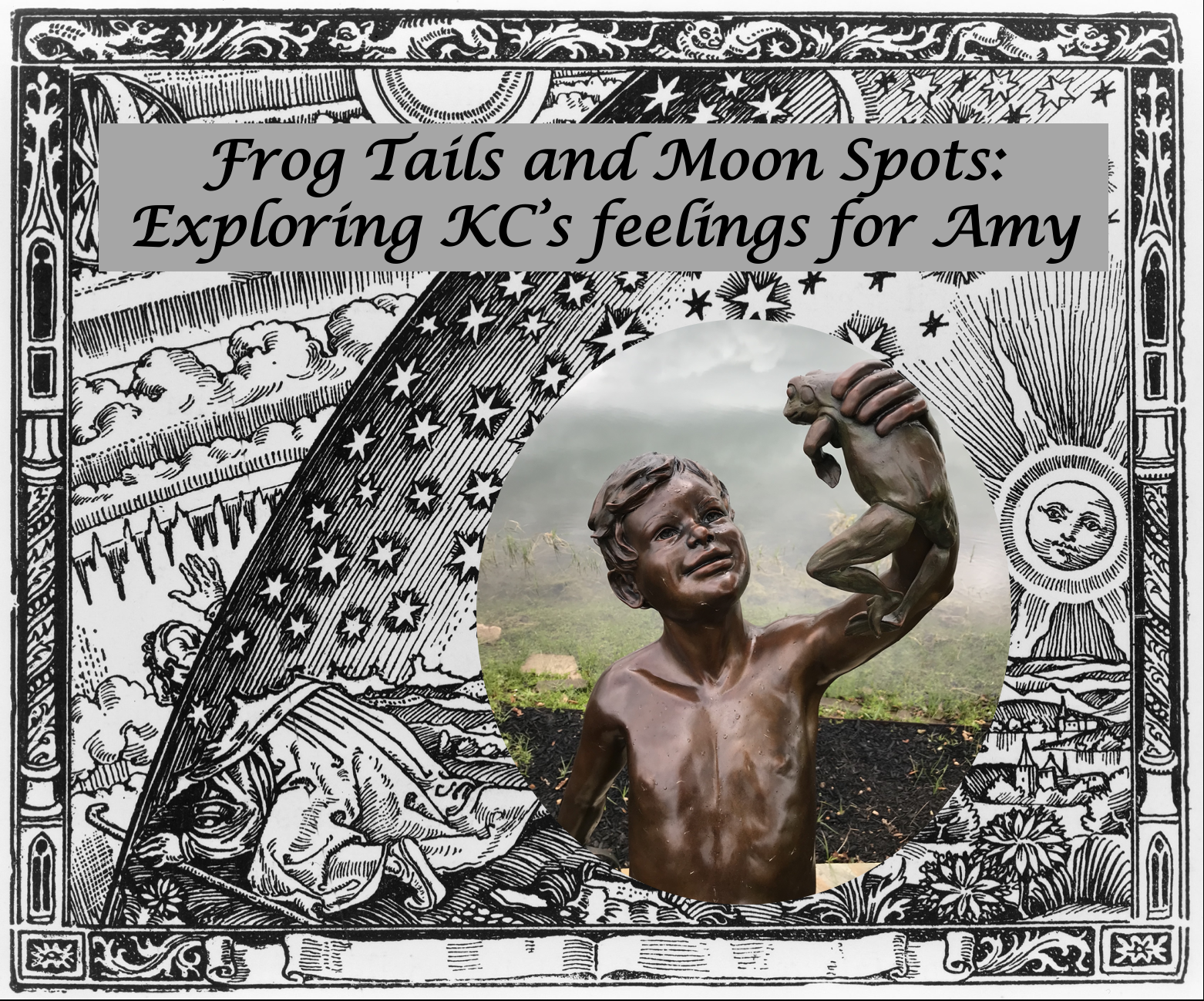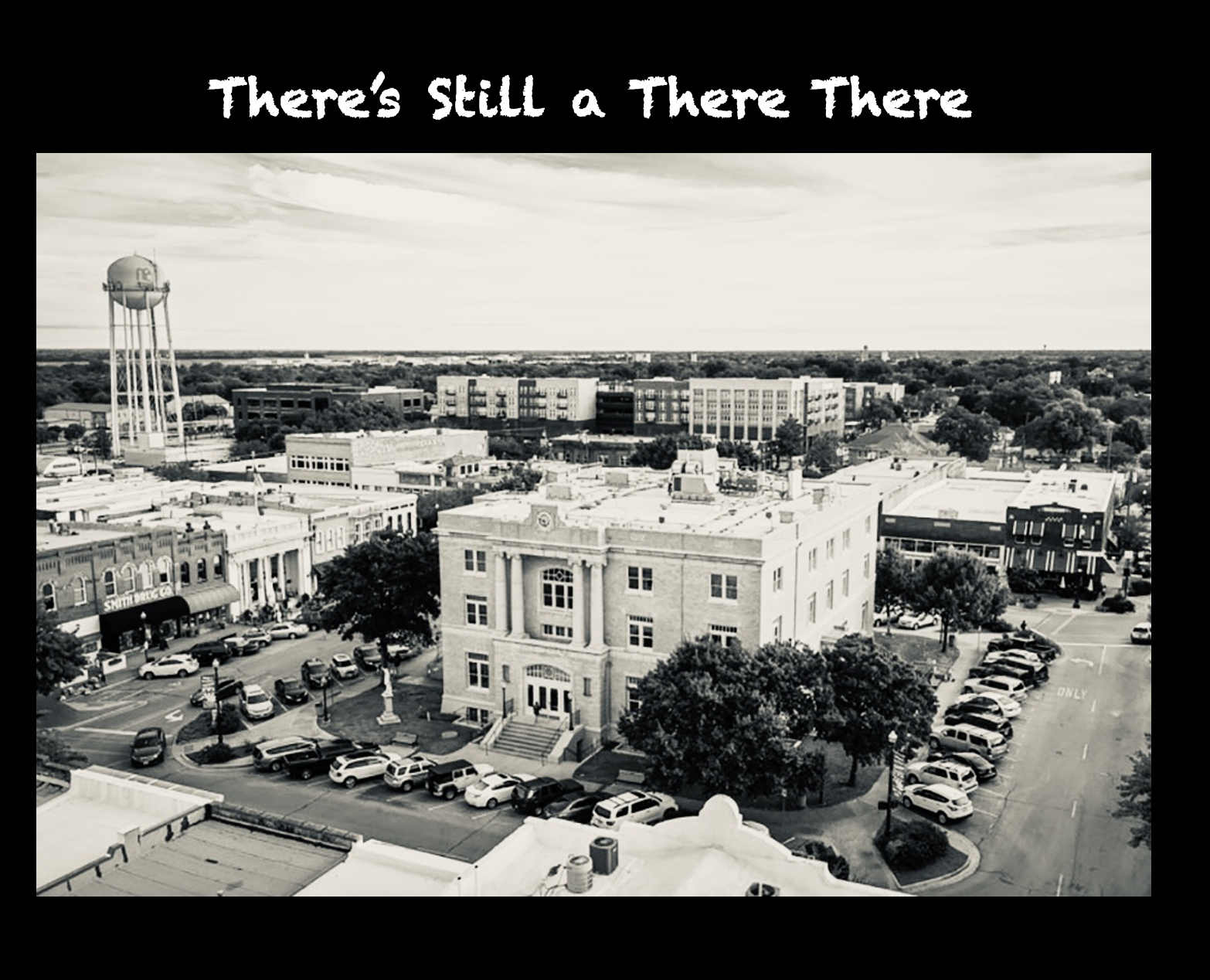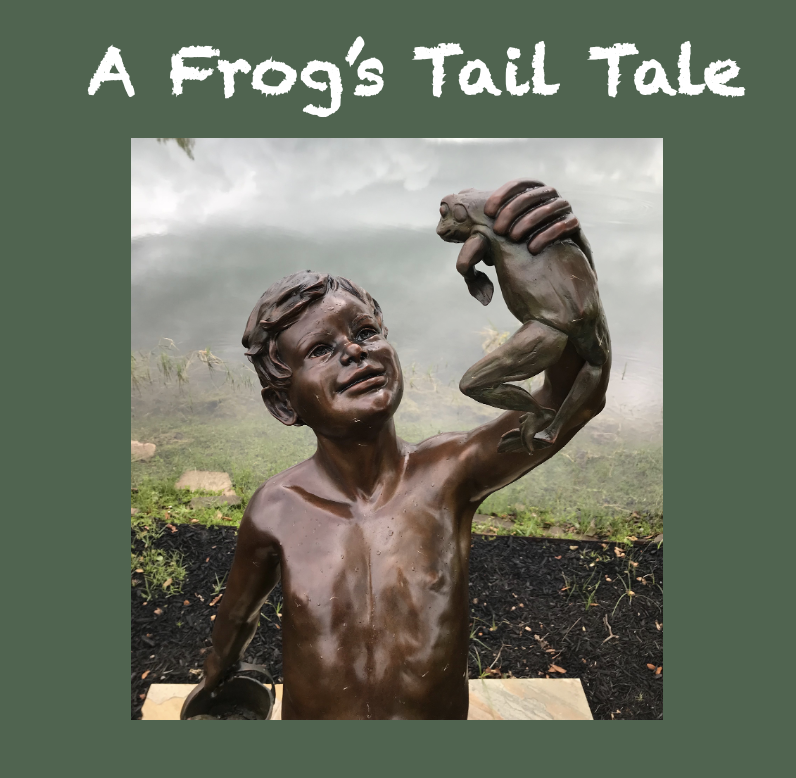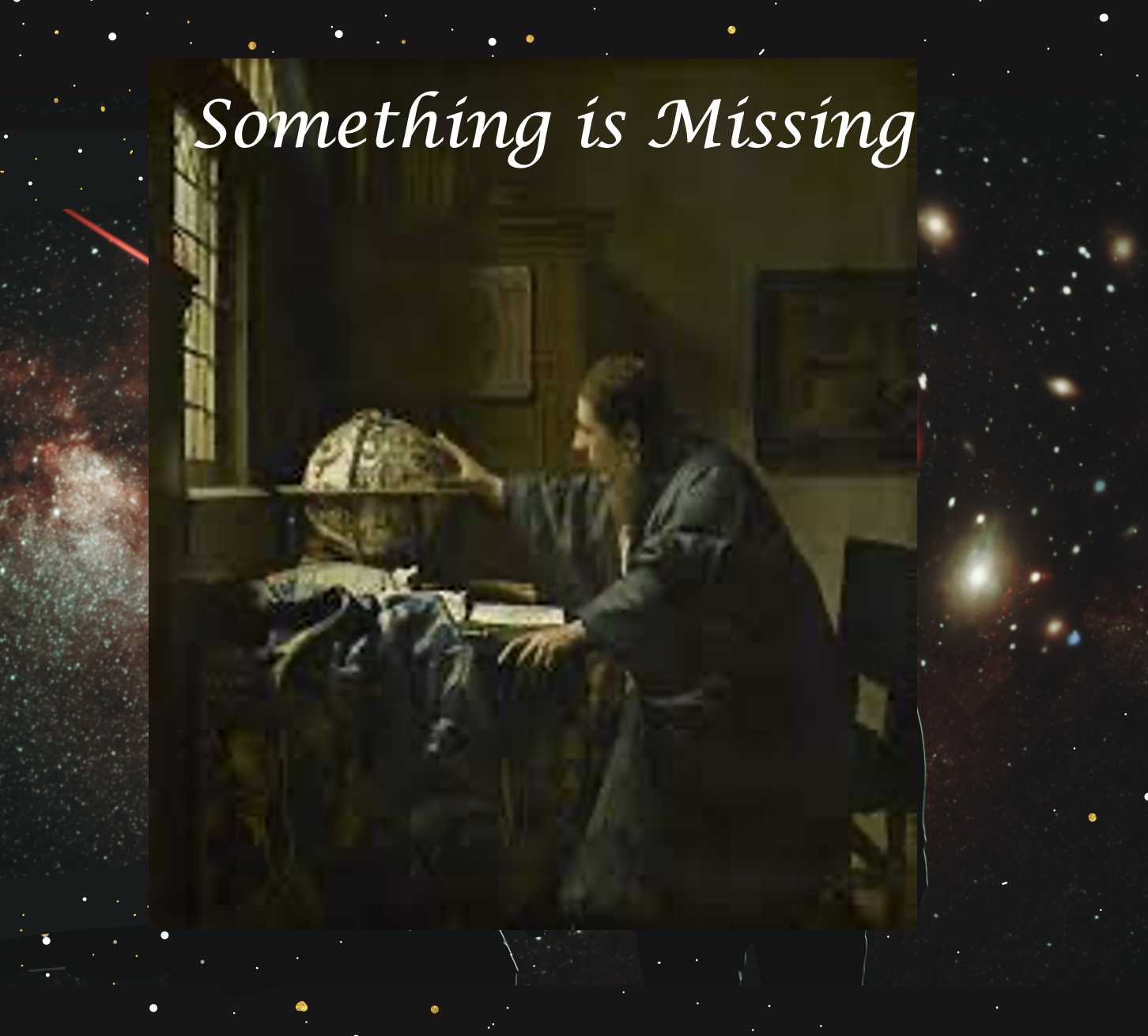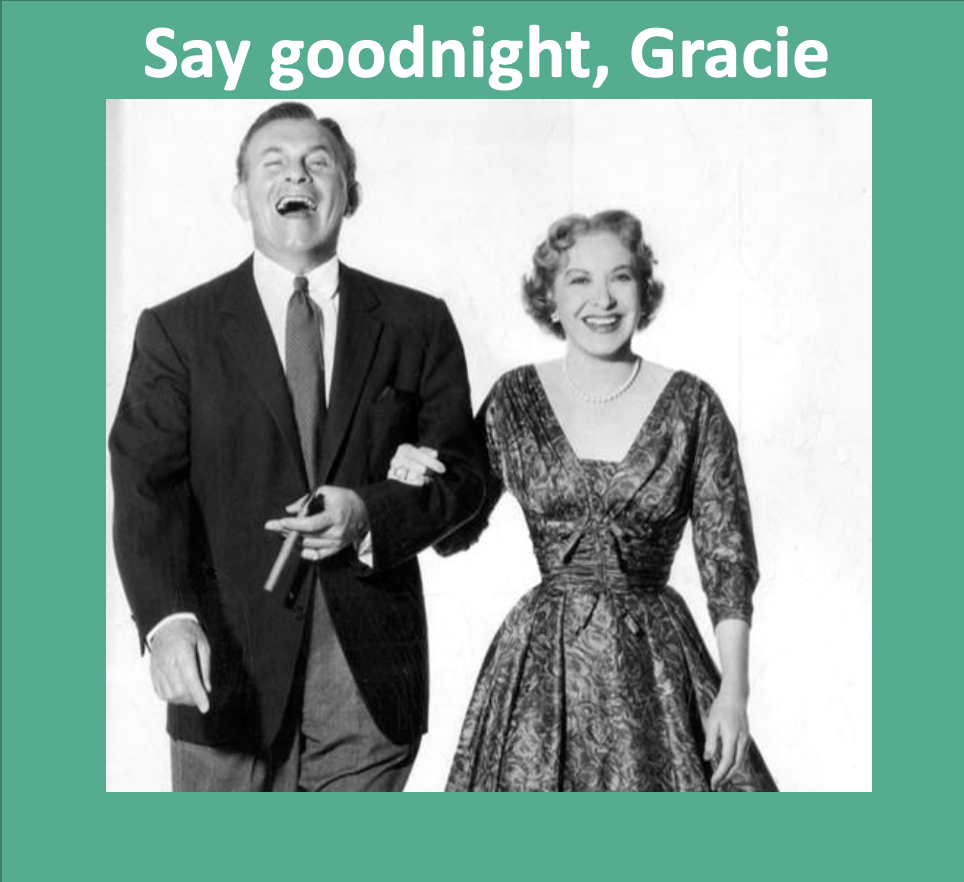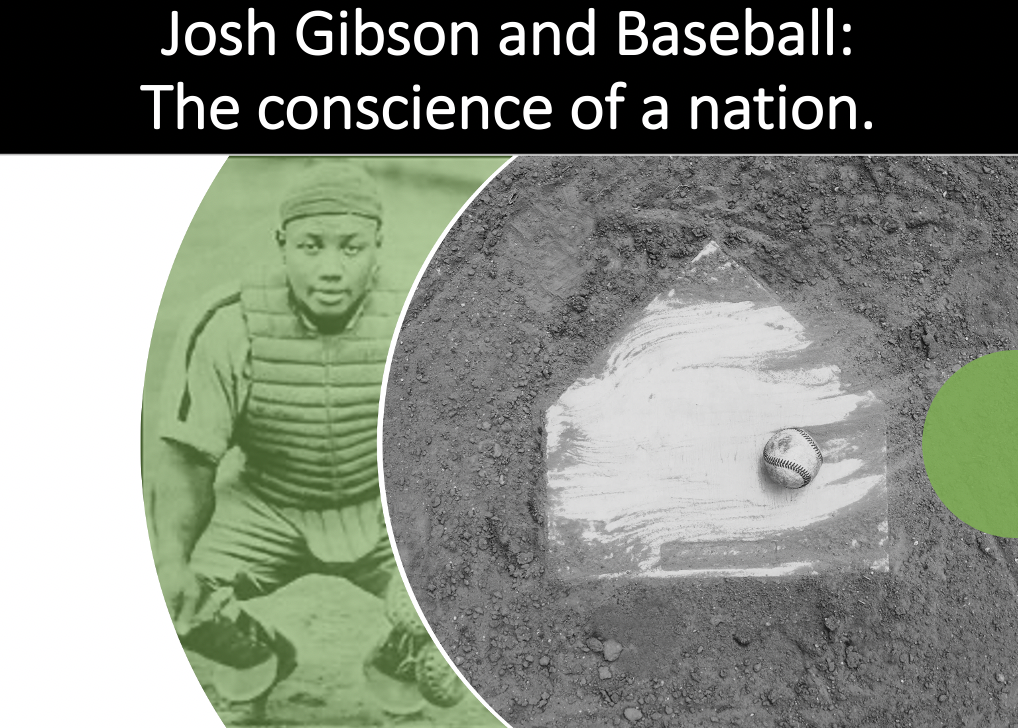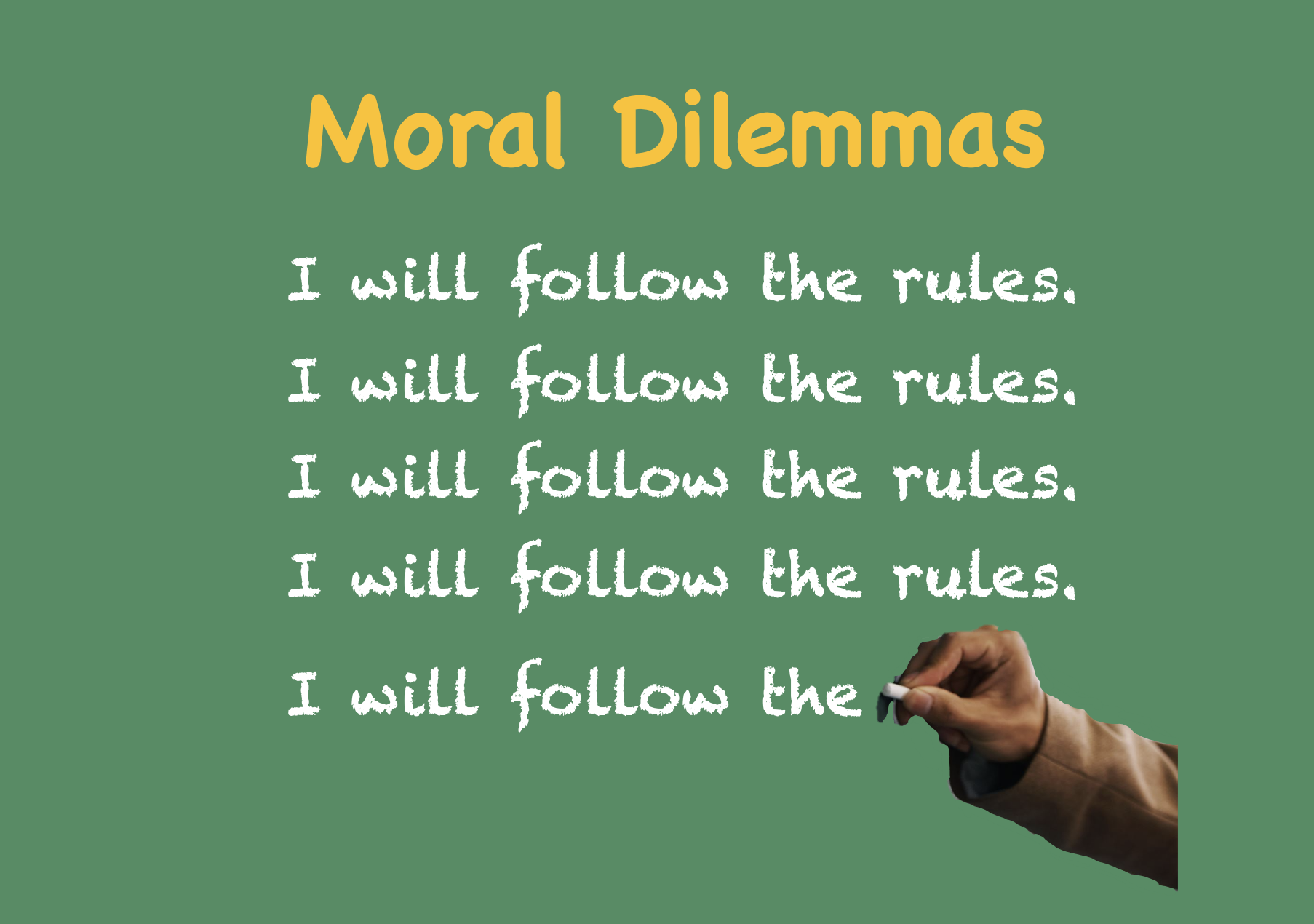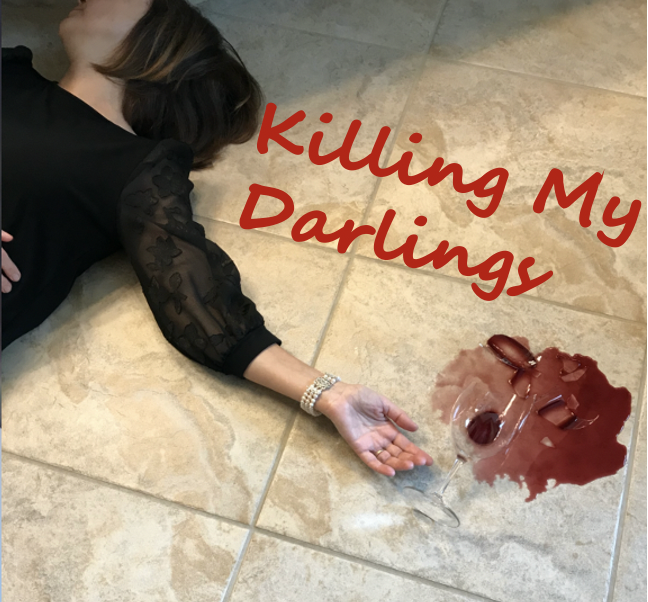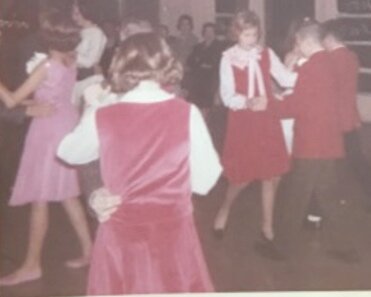A love story entangled in a mystery.
Kris Sims, a failed architect living a comfortable life reconstructed from the rubble and shards of his past, has his world upended when Amy Davis, his childhood soulmate, suddenly contacts him after making a heartbreaking discovery. As the mystery of their tragic separation forty years earlier unfolds, Kris and Amy cautiously reforge a bond and desperately struggle to balance their feelings for each other and their spouses. But will a decades-long vendetta against Kris and a newly formed jealousy toward Amy destroy their marriages, lives, and those they love? The Keeper’s Tell is a soul-wrenching story of lost childhood and an enduring memory caught in a complex web of secrets and deceit with threads weaving from the horrors of World War II France through a brief magical time in a small Texas town to brutality in Vietnam—and far beyond.
Reviews by verified purchasers
“A very strong story. How a sweet childhood friendship ends in murder, takes a lifetime. Love, jealousy, and greed are the makings of a modern-day Shakespearian troupe. This is a story that is reflective of Western values; the good, the bad, and the evil in all our hearts. It's worth the read. Bravo!”
“Wonderful read. I liked everything about this page turner novel.”
After retirement, I spent many hours with my elderly mother and older sister looking at long-forgotten photos and recollecting time-ravaged memories. The years had weathered the memories and emotions of past events down to near insignificance. But our discussions eventually lead to revelations that distilled out bits and pieces of the poignant components of our past. My mother requested I write a memoir. Instead, I wrote a fictional story inspired by our imperfect memories of a few events in our lives. “The Fork and the Cork” summarizes what happened over three days in 2016 that lead to the novel, The Keeper’s Tell.
The FORK and the CORK
We reached the third day of our journey and, to be honest, things were not going so well.
"Mom, where is the silverware Dad gave you after the war?"
"You know about that?" she asked.
"Yes, the whole story. So where is it?"
˜˜˜
I could taste it, my new life in front of me, refreshing like a glass of iced tea on a hot summer day. Golfing, traveling with my wife, and playing with our grandchildren, but my first post-retirement mission was to visit my elderly mother who lived with my older half-sister. Adulthood, with its responsibilities and distance, prevented me from fully engaging with the first two women in my life, so I made a correction in 2016.
The drive from Houston to the small, rural community consumed only five hours— this is Texas, where we consider life in three stages: a lot of road ahead, a lot of road behind, or halfway there and stop at Buc-ee's to fill up. I had a lot of road behind me, but not quite enough to understand the whole story.
In the early 1940s, my mother, with her young daughter, left the Piney Woods and the red clay of East Texas for the prairies and tall buildings of Dallas in search of a better life and a husband, which she found; I'm a Boomer who grew up in the 1950s. After the sixties and seventies fatigued out, I married, had children, and my mother and sister, widowed and retired, moved back to East Texas to live a more peaceful life. The time was right to catch up.
We enjoyed being together as a family again, mostly cooking, drinking, laughing, and of course I did some "fixin' up" around the house. A couple of days to finish my chores and then one more task. "Get it down," she said, pointing to the top shelf in the back of her closet. The old Neiman-Marcus dress box contained our early lives in the form of loose photographs. One-by-one, we went through the photos, and Mom gave us the back stories whether we were interested or not.
My sister laughed and pointed at my young image. The words at the bottom, "West Ward '58-'59," and the thirty faces in the class photo briefly brought a smile to me; my mother didn't have all the back story for this one. I remembered: Kippy— the best dog ever; the creek near our house where I learned more than in school; the magical trip to Disneyland; and a brief time with a gentle, but precocious, eleven-year-old girl classmate, who I will call Sadie. My attraction to her was strengthened beyond our years because we took ballroom dance lessons together, and the adults in the room insisted we clutch on to each other; I didn't object, and as far as I could tell, neither did she. Mom and Sis remembered Kippy and the creek, but not Sadie, so other than my parents' marriage falling apart, they were unaware of the other traumatic event occurring during the last few days of my fifth grade.
One day I decided to be just a boy, not a boyfriend with all the duties and functions. We loaded onto a bus for the end-of-year field trip, but my frame of mind caused me to walk past Sadie and the empty adjacent seat she had saved for me; I didn't sit by her. I learned something about relationships because her tears and physical response reminded me of my mother when my parents argued. Too immature to correct the situation immediately and not mature enough to avoid miscalculation again, I assumed time would heal, and we would have a fun summer together; I particularly wanted to impress her with my baseball skills. But she was unforgiving and would not speak to me. Why was she so upset?
The answer pierced me. At the end of class on the last day of school, in response to the teacher's prompt, she stood up and told us she was leaving town the following week because her father had been transferred to another state. The bell rang, sounding more annoying and longer than usual. The students hurried out of the classroom, down the corridor toward the front doors to burst out into a new summer of fun. For me, summer was walking out of my life, so I chased after her, yelling her name, shoving my way through the sea of bodies, finally catching up to her at the school entrance.
"Why didn't you tell me you're leaving?" I pleaded.
She sighed. “I was going to tell you on the bus.” For whatever reason, the sting of those few words never left me, but she did.
Shortly afterward Sadie left, my parents divorced, and my mother, sister and I moved to another town. I had a bad summer. My life became a memory, and my mood occasionally turned gloomy. Time eventually twisted these independent, but concurrent, events, into a solitary ghost defining my childhood. I always wondered if my life would have been different had I followed the rules and sat by my girlfriend as expected.
Mom still enjoyed a sip or two of brew, which was sufficient to loosen her up to reveal the magical trip to Disneyland in 1959 was in reality a last-ditch effort to save her marriage after discovering my father’s affair. So, fifty-seven years later, the happiest place on Earth was not.
Dad was a forward observer for an artillery company during WWII. When I was a kid, he told me his war stories and showed me the Luger pistol and spyglass he recovered from a dead German officer. He also "liberated" a set of silverware from a French home he used as an observation post. He gave his "loot" to my mother as a gift when he returned, and I remember the pieces, with ivory handles, displayed proudly on the dining room table, until they weren't. Near the end of his life, my father asked me if Mom still had the set. He died before I could find out.
I steered the awkward conversation away from the affair. "Mom, where is the silverware Dad gave you after the war?"
"You know about that?"
"Yes, the whole story. So where is it?"
"Sold it at a garage sale after the divorce," she said with a dismissive wave of her hand.
"What?" I asked, grabbing the top of my head with both hands.
"Why are you so upset?" she asked.
"Because Dad stole it, and I wanted to return it to the rightful owners someday. But you chucked it." An uncomfortable silence followed.
"Did I ever tell you the difference between a bird and a fish?" Mom asked as she pulled herself up on her walker and proceeded to her bedroom. My sister gave me a shrug. After a few minutes, my mother returned. "A fish lives in a dark place and can't see much. You see, I'm the rightful owner of my memory of him," she said as she handed me a small serving fork. "I loved your father, and I kept this one piece to remember him. You can do with it as you wish— but don't be a fish. You're above that."
She had understood my disappointment better than I had. My mother's words were like a rock dropped in a pond, causing more memories of Sadie to swim to the surface.
Sadie and I didn't abruptly lose contact after our separation. We wrote each other once or twice a year for the next five years, until natural teenage attractions, time, and distance caused our past bond to fade away; the letters stopped. However, due to a strange series of events, she and I met one more time, for dinner, a week before we were both to leave for colleges in different states. Although underage, we shared a bottle of wine; I knew the waiter. I don't remember revisiting my school bus mistake with her. Perhaps we avoided the topic, or it was not important at the time, but to be honest, that demon never left me. Our evening together was more of a "catch up" than a date— nothing romantic to report; mostly we were excited about going off to college and closing the book on our childhoods, knowing we probably would never meet again— and we never did. As we stood-up to leave the restaurant, Sadie picked up the bottle cork from the table, smiled at me, and asked, "Mind if I keep this?”
The highway sign promised I was almost home: “Houston- 119 miles.” I got into my car after filling up at Buc-ee's and drove south. A school bus passed, going in the opposite direction, and I glanced at the fork, proudly displayed on the center console. It had taken me every bit of road to understand the long stretch behind me had been better than I had thought. Thanks, Mom.
Footnote: Shortly after I wrote this, my wife suggested I get on Facebook so our scattered family could experience our lives more regularly. I did that, and the family was a little more united. But something unexpected and wonderful happened; friends from my childhood connected with me again. I wondered, then Googled to see if Sadie was out there somewhere. Through her parents’ online obituaries, I learned she was married and had two children. I then Googled her married name and discovered that she had been an elementary school teacher, had two grandchildren, and had recently passed away. She had briefly been a part of my adolescence, obviously at a critical time, because I felt unforeseen grief. I hope she had a happy life.
Back to the top
Some readers of The Keeper’s Tell may think KC and Amy were too young and their time together too brief to establish an enduring romantic bond, reemerging after forty years when they reunited. Amy may be the more realistic character of the two, as she apparently moved on with her life until they met again. KC, who likely suffered from high-functioning autism/Asperger’s syndrome, never let go of his feelings for Amy, so much so, those feelings significantly influenced his teenage and adult years. Although the extent of the relationship between KC and Amy may seem improbable, that part of the story reflects the real story of Beatrice Portinari and Dante Alighieri, the 13th Century Italian poet.
Dante and Beatrice
Dante Alighieri and Beatrice Portinari lived in Florence as children, first meeting when his father took him to the Portinari home for a party. Dante wrote about this meeting later in life, confessing he was instantly smitten by her; he was nine, and she was eight. While they may have had other interactions as children, Dante wrote about unexpectedly meeting her again nine years later (they would have been eighteen and seventeen) as they passed by each other on a street in Florence. He recalled she greeted him, but he ran away, too dumbfounded to speak. There are accounts of their meeting twice again, but both married other people. You might think that was the end of the story, a story that Dante might have never told had Beatrice not died at the early age of twenty-four. After her death, Dante withdrew to write poetry dedicated to her memory, describing her as pure beauty, grace, and kindness. The rare interactions between the two suggest that most of what Dante wrote of Beatrice was what he conjured up in his mind. But his love for a very human eight-year-old girl produced the La Divina Commedia (The Divine Comedy), perhaps the most significant Italian literary work.
Beatrice and Amy
In the Divine Comedy, Dante presents Beatrice as the ideal human, appearing as an angel to guide him through Paradise in his search for the “true” understanding of the universe and God. Dante was fascinated with the “perfectly” glowing objects in the heavens (the sky); he was a few centuries shy of a telescope, but he had the angel Beatrice to explain things to him. In one scene, he asks her about the moon’s different shades of gray, which he considers an “imperfection” in the heavens. She engages him with an elaborate thought experiment, convincing him the moon is perfectly uniform in brightness, and the spots appear darker only because those parts of the moon are farther away. Perhaps he used his writings to express his views of the universe and maintain plausible deniability by claiming an angel told him such things; he was not on good terms with the Pope, the spiritual and political leader at the time. But perhaps, the interaction between the two in The Divine Comedy is a re-creation of a meaningful encounter when Dante and Beatrice first met in real life as children; they were both from prominent families and were undoubtedly well-educated for the time. She may have actively stimulated both a romantic and intellectual interest, and she may have been one of a few who would listen to the rantings of a nine-year-old boy who was not a conventional thinker.
In The Keeper’s Tell, Amy Taylor searches for KC, who had withdrawn to his creek sanctuary he called Dead Man’s Canyon. After finding him, she apologizes for lying to him. She is even willing to engage him in discussing the significance of a tadpole losing its tail as it turns into a frog—he wonders if frogs can remember having tails. After KC reveals his thoughts, Amy provides an opposing theory. Although only twelve and thirteen at the time, this simple interaction takes their relationship to a higher level. Amy then convinces KC to change the name of Dead Man’s Canyon to Paradise. As with Dante and Beatrice, decades after their separation, KC was unable to forget Amy.
Susan and I recently visited the beautiful city of Florence, walking the same streets Dante and Beatrice walked. Not too far from the childhood home of Dante, we discovered the perfect restaurant tucked away in a small alley.
Drive thirty miles north on US 75 from downtown Dallas and there you are—in the “Middle of the Most” some used to call it—in McKinney, Texas, an affluent suburb of 200,000 people today. Don’t let the signage or acclaim tempt you to take the El Dorado exit and go west to any number of fine destinations (where everything and everyone is seemingly disproportionately above average) because you won’t find a there there; McKinney is elsewhere. Instead, exit Louisiana Street and head east while imagining you are taken back in time to the McKinney of the 1950s and 60s—the small town of 11,000 people I knew as a boy. Keep heading east, and you arrive at the town square, just as I did as a kid many times on my bike. The town square of the 1950s was four square blocks of brick-façade buildings built in the late 1800s and early 1900s. A neoclassical courthouse, renovated in the 1920s, stood watch in the center of the square. Tail-finned cars and pickup trucks filled the parking spaces, and bicycles littered the sidewalks in front of the Ritz movie theater and the Northside Pharmacy, where friends would gather at the soda fountain counter for BLTs, malts, and banana splits. Of note, not a bike left outside was shackled; bad things didn’t seem to happen, and laughter ruled the day.
Now, sixty years later, you arrive at the town square, and you see four square blocks of brick-façade buildings built in the late 1800s and early 1900s with a neoclassical county courthouse standing watch in the center of the square. Of course, the cars and businesses are different (boutiques, wine bars, and fine restaurants bustle), and no doubt bicycles are chained—just in case. And yes, the BLTs and banana splits at the counter have given way to tapas and top sirloins at appropriately adorned tables, but there is still a there there, and laughter still rules the day.
With few exceptions, every culture has some concept of time. Even the most primitive cultures see the seasons change, the predictable moon phases, and people age and die. We know all things change. But the past and the future can be considered abstract concepts that we entertain in the reality of “now.” In The Keeper’s Tell, I tried to capture the importance of “now” with the following:
“Daylight was fading; it was later than it had ever been and as early as it would get.”
Ernest Hemingway said it more directly in For Whom the Bell Tolls:
“There is neither yesterday, certainly, nor is there any tomorrow. How old must you be before you know that? There is only now.”
How we tolerate “now” is dependent on what we think we know of the past and the future. We may wish to leave “now” for a time we only imagine to be better, or we may want to never dissolve into the uncertain future—we may want to stop time from marching on—as in my story, The Keeper’s Tell. The narrator tells us,
“They straddled the log facing each other, looking into each other’s eyes, not speaking, hearts pounding, gasping for air now. She had spent the night thinking of a future she could not imagine. The only thing that mattered now was now.”
Ernest Hemingway expressed the same concept of trying to stop time in this passage from For Whom the Bells Toll:
“...I did not know that I could ever feel what I have felt, he thought. Nor that this could happen to me. I would like to have it for my whole life. You will, the other part of him said. You will. You have it NOW and that is all your whole life is; now.”
As readers, we gain insight into the story when we discover why characters so desperately try to hang onto “now.” However, we know it is futile—and childish as so brilliantly expressed in Elena Ferrante’s novel, “My Brilliant Friend.”
“Children don’t know the meaning of yesterday, of the day before yesterday, or even of tomorrow, everything is this, now….”
In The Keeper’s Tell, Kris’s and Amy’s relationship was always childish, even in their adult lives, because they wanted to take back their lost childhoods, and because they had no future together—they knew there was only now.
Back to the Top
As a boy, I spent a large percentage of my time on the creek because I was curious about everything there, especially frogs and their tadpole precursors. A watchful eye could see the tads transform into tiny frogs over a couple of months. A uniquely human characteristic is to wonder why and how; I convinced myself that a tadpole’s tail turned into legs and feet by some unknown biochemical mechanism.
Besides frogs, one of my other interests was (and still is) the American Civil War. When I was a boy, there were people alive who had lived during the Civil War, so I was aware that that great tragedy occurred in the not-too-distant past. I discovered the divided nation's anger and the military weapons and strategy of the time resulted in the unimaginable loss of life (620,000 deaths) and the equal horror of 45,000 amputees. Reading some of these stories introduced me to the concept of “phantom pain,” a phenomenon where an amputee still feels the missing limb. In 1866, 20% of the state budget of Mississippi was designated for prosthetic limbs.
So, in my boyhood world, frogs and the Civil War met when I wondered if a frog could feel (or remember) its lost tail. A tadpole losing its tail is a metaphor for Amy and KC’s relationship and separation; that is why KC asked Amy if she thought a frog can remember its tail.
Back to the Top
"Something is missing" is a name of a chapter in The Keeper's Tell where the adult Kris ponders Johannes Vermeer's painting, The Astronomer. Kris was reflecting on his childhood when he could not have something he wanted—a telescope (which is also a metaphor for Amy). The scene also arcs to a subplot—the theft of personal items during World War II. "The Astronomer," owned by the Rothchild family of Paris, was taken by the Nazis for Adolph Hitler's private art collection. We know the painting was found, returned, and is now part of the art collection in the Louvre, but we are left to wonder if Kris will ever get his long-desired telescope.
In a scene from The Keeper’s Tell, the adult Kris and Amy have a moment together. They both have strong feelings for each other despite being separated for over forty years and having their own families now. Being respectful of their situations, Kris expresses his feelings toward Amy by fabricating a theory that everyone has only 37 perfect love matches. He explains the chance of meeting any of those 37 people is impossibly small, and she and he were unbelievably lucky, to the point of miraculous, to have each met two of those 37 people.
I never meant this scene to have a deeper meaning; Kris randomly picked the number 37. But there may be something telling about this number, or numbers very close. Long after writing the scene, I learned that a Jewish legend proclaims there are always 36 special people in the world who secretly maintain the world. A coincidence, perhaps, but why did my character use 37 instead of 189 or 5? I think Kris used 37 as a subconscious reference to Douglass Adams’s Hitchhiker’s Guide to The Galaxy, in which the ultimate answer to the unanswerable question of life is, simply, “42.” There appears to be something comfortable about quantities in the thirties and forties—enough to be substantial and meaningful, but not overly ostentatious and unattainable. But there may be something else going on: https://www.youtube.com/watch?v=d6iQrh2TK98/
This scene in the book reveals something else about human nature. Amy, always amused at Kris’s bizarre sense of humor, asks him how he can be so sure we each have only 37 people in the world who match us perfectly. Kris laughingly replies, “I’m always sure about things that are a matter of opinion.” I took (with appropriate acknowledgment of the source) his response directly from a Peanuts cartoon that started on a serious note.
Linus: “When you die and go to heaven, are you graded on a percentage or on a curve?”
Charlie Brown: “On a curve, naturally.”
Linus: “How can you be so sure?”
Charlie Brown: “I’m always sure about things that are a matter of opinion.”
Back to the top
Susan, the kids, and I moved into our current house in 1996. The side yard was a 600 square feet home to two air condition units and a plot of grass catching enough sunlight to require mowing, but not enough to look greener from the other side of the fence. I planted some palm trees about, mainly to take up space and reduce the mowing. Over the years, the trees grew tall, providing a delightful canopy and enough shade to kill the remaining grass.
When I retired, I started developing the story for The Keeper's Tell, which is inspired by childhood events and places. I claimed possession of small creek behind our house because we were among the first families to build in the area. As sole ruler, I gave each distinct section of the creek a name–Circle S Canyon, Crawdad Canyon, The Rapids, and Dead Man's Canyon. The latter was my favorite because the stream cut deep into the limestone producing tall banks crown by trees that enclosed the creek in a cool, eerie shade–even in the summertime.
The palm tree canopy in our grassless side yard nestled between the house and the fence reminded me of Dead Man's Canyon–without the creek. So, I made one. At least I simulated one by building two small ponds connected by a stream fed by artificial waterfalls. To give it more of a natural feel, I planted an overabundance of ferns and added a gravel walking path and a rustic footbridge. The area became a haven for Susan and me to enjoy the end of the day together. After the grandchildren came along, our sanctuary became a magical place for them to explore safely. I proudly called the place "Fern Gully" because of its fairy tale appearance. Susan insisted our side yard be called “Paradise." So in the book, Amy proclaims KC's Dead Man's Canyon would be called Paradise. Welcome to "Paradise."
Back to the top
In the book, KC gives Amy the nickname Gracie. Some of you youngsters out there have asked me about the origin of “Say goodnight, Gracie.” The phrase was George Burns and Gracie Allen’s signature sign-off to their television shows in the 1950s. Gracie would tell a story with a crazy, non-sensical ending. George would shoot a perplexed stare at the camera and say, “Say goodnight, Gracie.” Many people think that Gracie’s reply was, “Goodnight, Gracie,” which would have been an obvious funny way to end their comedy sketch. But she never said, “Goodnight, Gracie.” She just said, “Goodnight.”
In the 1960s, there was a show call “Laugh-In” starring Dan Rowan and Dick Martin, who used George and Gracie’s show finale. Dick would say something outrageous, and Dan would turn to the camera and say, “Say goodnight, Dick.” Dick would then say, “Goodnight, Dick.” George Burns often lamented that he and Gracie never thought of having her say, “Goodnight, Gracie.”
One of my favorite George Burns’ stories is his explanation of his marriage to Gracie. “I have to be honest,” Burns writes, “I was a lousy lover. But Gracie married me for laughs, not for sex. Of course, she got both of them—when we had sex, she laughed.”
Back to the top
Other sports are played on a rectangle and have heroes and legends. Baseball is played on a diamond and has heroes and gods.
The only sport called America’s National Pastime is baseball. I suppose the moniker has something to do with its long history, its fanatical fascination with statistics (a professional baseball game may be the most detailed recorded two-to-three-hour period of any human endeavor), and its inextricable entanglement with the national consciousness and conscience that the Civil War forged.
As a kid, I realized that baseball was different from the other two sports I played, football and basketball. Football and basketball were the same sport; both were played on a rectangle, and the goal is to get an object from one end of the rectangle to the other end while a bunch of guys tried to stop you. Baseball was not that simple.
My first recollection of baseball was listening to games on the radio with my father in the early 1950s; Willie Mays was my hero. I don’t remember if I knew he was a black ballplayer when I first heard of his extraordinary ability to make the most challenging game look easy. In 1958, when I was eleven years old, I suddenly realized why there were more and more black ballplayers appearing on the major league rosters. Had Willie Mays, Hank Aaron, and Elston Howard been a little older, I would never have known of them. Although they played before my time, I was keenly aware of Babe Ruth, Ty Cobb, Dizzy Dean, Joe DiMaggio, Ted Williams, and a host of other white players. I wondered how many unknown Willie Mayses there had been. I eventually learned about Josh Gibson, perhaps the best baseball player ever. Baseball taught me about racism, denying someone of something that is rightfully theirs, and wondering what might have been.
I tried to tether these themes together in the book. Kris equates his life with Josh Gibson’s because, like Gibson, other people had denied him of his full potential. The book further addresses this when Kris’s father, Mike, desires to rectify a wrong committed in WWII– indicating a character quality developed as a high school baseball player. Below is a passage from the book where Mike explains his love for baseball.
The rain stopped. Callahan sat up and lit a cigarette. “You think anyone will ever break Ruth’s home run record?”
“Won’t matter much,” Mike said.
“Why’s that?”
“In high school, we had an old, retired Negro League player who helped maintain our field, but he was more than that. He told us about the guys he had played with and against, and he was sure to remind us that all Major League records will always be tainted because some of the best ballplayers never got the chance in the majors. Cicero– that was his name– would meet with the players in the shade of an old pecan tree near the field after practice to explain to us what our coach was trying to teach us. A lot of guys enjoyed the chewing tobacco he was willing to share. He knew more about baseball than our coach. At least, he would explain that complicated game in a way that made it easier to understand what we should be trying to do in every situation. He was a wise man. I can still remember him saying, ‘Boys, there be only two sports– baseball and everything else. Everything else be played on a rectangle, but baseball be special. It be played on a diamond. Remember, the point in baseball be to leave home and try to get back safe where you started from. But you gots to get dirty trying, or you ain’t trying hard enough. Them other sports ain’t nothing but about gettin’ a thang from one end of that rectangle to the other end.’ Funny, I’m not sure if Cicero was his first or last name.”
Back to the top
Rules are not enough. Even when we understand the spirit of the rule, there always seems to be a conflicting spirit floating about.
We know “you are never too old to learn,” but, for some reason, “you can’t teach an old dog new tricks.” We know that planning before we act is a good thing as in “hastes makes waste,” but we also know that “he who hesitates is lost.”
These opposing views are neither true nor false; they are the two sides of the same coin. To believe otherwise is dogmatic and unproductive; Kipling’s poem “If” comes to mind, as does this quote from F. Scott Fitzgerald:
“The test of a first-rate intelligence is the ability to hold two opposed ideas in the mind at the same time and still retain the ability to function.”
In short, the best life is lived in a dynamic equilibrium.
I assumed you followed my thinking because great minds think alike in knowing that we should all march to the beat of a different drummer. After all, it’s later than it’s ever been and as early as it’s going to get.
Back to the top
“Kill your darlings” is one of the first rules of writing. Regardless of skill and experience, every author will initially include words, phrases, passages, and scenes that are personally satisfying but do not help the ultimate audience, the reader, follow the story. To save the whole body of work, the author should sacrifice the unnecessary words– “kill your darlings.” This space represents the cemetery where selected few of early draft “darlings” reside. Feel free to resurrect them.
LET’S DANCE
“Ladies and gentlemen,” said Mrs. Martinez, the dance instructor. “Now that we have learned the basic waltz box step, let’s try it with a partner. Boys, please line up to my left. Girls, please line up to my right. Young men, please walk up to any young lady and politely ask her to dance.”
KC lined up across from Amy, then walked toward her. Robby Howell stepped into Amy’s view. “Amy, would you like to dance?”
“Uh, hi, Robby.” Her eyes move to KC, who was now behind Robby. KC shrugged. She glanced back at Robby. “Oh, well.”
“Robby, you don’t want to dance with her,” KC said.
Robby turned around and gave him an angry stare. “I don’t? Why not?”
“She, uh, has a rash.” Her arms dropped as she gave KC a stare and a scowl.
Robby glared at KC. “If she has a rash, why do you hang around her so much?”
“Well, uh, I already caught her rash, too late for me.” KC smiled and scratched his arm above his wrist. He pointed across the room. “Suzy needs a partner, and she won’t dance with me because I have Amy’s rash.”
Robby looked at Amy, who shrugged, smiled, and scratched her arm. Dispirited, he shook his head as he walked away.
KC turned toward Amy. Her arms folded, lips tightly pressed together, she glared at him as he held out his arms. “Well, do you want to dance or not?”
She dropped her arms and shook her head. “I guess so, but I’m not sure anymore after that. Now everyone in school will think I have a rash. You’re crazy.” She smiled. “I kinda like it.”
Back to the top
In the book, Kris’s father, Mike, reveals information he had hidden for over fifty years after Kris confronts him with a blatant lie. The scene involves Mike telling the story to Kris. I showed Mike’s story in more detail in earlier versions using flashbacks to WWII. I cut the flashback because the scene was too long for what it added to the story. My father’s experience as a forward observer in Patton’s Third Army was the inspiration for Mike’s story. The removed scene follows.
“So do you want to know what happened?” Mike asked.
“Yes, that’s why we’re here,” Kris said.
“Well, sit down and listen, for a change.”
~~~
October 16, 1944. East of Paris
Lieutenant Michael Sims and Sergeant James Callahan drove their jeep east toward Metz, a fortified German stronghold. Overnight, a cold October rain had begun and continued steadily. Callahan sat in the passenger seat with his arms folded around his waist, head tucked down, protecting himself from unseasonable elements.
“You okay?” Sims asked.
“How can anyone expect us to fight a war in this crap?”
Sims laughed. “The Germans are having to put up with this crap too. So I guess the winner is gonna be the one who gets the dirtiest and coldest.”
The rain stopped. Callahan sat up and lit a cigarette. “You think Ruth’s home run record will ever be broken?”
“Won’t matter much.”
“Why’s that?”
“In high school, we had an old, retired Negro League player who helped maintain our field, but he was more than that. He told us about the guys he had played with and against, and he was sure to remind us that all Major League records will always be tainted because some of the best ballplayers never got the chance in the majors. Cicero, that was his name, would meet with the players in the shade of an old pecan tree near the field after practice to explain to us what our coach was trying to teach us. A lot of guys enjoyed the chewing tobacco he was willing to share. Anyway, he could explain that complicated game in a way that made it easier to understand what we should be trying to do in every situation. He was a wise man. I can still remember him saying, ‘Boys, there be only two sports— baseball and everything else. Everything else be played on a rectangle, but baseball be special. It be played on a diamond. Remember, the point in baseball be to leave home, and try to get back safe where you started from. But you gots to get dirty trying, or you ain’t trying hard enough. Them other sports ain’t nothing but about gettin’ a thing from one end of that rectangle to the other end.’ Funny, I’m not sure if Cicero was his first or last name.”
Callahan shrugged. “Now that the girls are starting to move back home from the base in Pennsylvania, what’s Sara doing back in Dallas?”
“She’s working at her dad’s insurance company. How’s Sophie doing?”
“Good, but there’re not too many girls left for her to hang around with on base. She’s thinking about enrolling in nursing school in Pittsburgh.”
“Think you’ll move to Pittsburgh after the war?”
“Probably.”
At the Ninety-fifth Infantry Division Headquarters West of Metz
Captain Hodges, headquarters commander, briefed Sims and Callahan on their general mission and told them more details would be given to them in the morning.
The next morning, Sergeant Peake put his gear in Sims’s jeep and settled into the passenger seat as Callahan climbed into the back. Sims got into the driver’s seat but froze as incoming artillery shells began to fall and explode. “Drive,” Peake yelled above the noise as he pointed toward a road. “This your first combat action?”
Sims yelled back. “Yes. Hey, why aren’t we firing back?”
“We don’t have eyes on them— that’s your job, but don’t worry about targeting those forts. They’re reinforced concrete. We’ll have to take them hand-to-hand, but we have to destroy their cannons so we can move in on them.”
Peake, speaking loudly through intermittent explosions, told them the immediate goal of the Germans was to harass the Americans and delay their efforts to take Metz, which would be a staging ground for the Allies to move across the Moselle River into Germany. Intelligence indicated the Germans were sending reinforcements, so it was crucial to take the city as soon as possible.”
A deafening explosion occurred near the Ninety-fifth headquarters.
“That was from their big-ass rail gun,” Peake explained.
“Captain Hodges told us that’s our major objective,” Sims said.
Peake nodded. “We know they move it to this side of Metz sometimes because divisions twenty kilometers to our west are shelled occasionally. We haven’t been able to spot it. The shelling lasts just a few minutes a couple of times a day, then they reposition their guns to avoid detection. You’re going up to Gorze, a village on the top of the hill that has a good view of the valley, but the Germans are aware of its strategic location. Williams and Tucker headed up to the village about five days ago, but we haven’t heard from them since.” The shelling stopped.
“Williams and Tucker? Forward observers?”
“Yep.”
“So Cal and I may run into our German counterparts up there?”
“That place changes hands regularly. I’m pretty sure we have it cleared out this morning, at least for a while. You know how to use your pistols, don’t you?”
Sims and Callahan looked at each other. “Uh, sure— but don’t the Germans shell the village?” Sims asked.
“Not yet.”
“Why?”
“They want to use it to spot our troops when we advance on Metz. If they believe we have eyes on something important from there, they’ll take it out.”
Peake signaled to Sims to stop the jeep. He jumped out and gathered his equipment. “Okay, this is where I leave you guys. Gorze is about two kilometers up on the left. It has a lovely view of the valley, Metz, and all the forts, at no extra cost. The woods conceal the road on both sides until about a hundred meters from the first house in the village. At that point, there is an open field on the left. Stop before you get to the field because you lose the tree cover. There’s a path marked by a stone fence on either side— it leads to an old barn that’s next to the open field. Hide your jeep by the barn, in the trees.
“I’m with the squad perched in those woods about a hundred meters off the road on the right,” Peake said pointing. “We’re there to make sure the Krauts don’t think about a Sunday drive down this side of the hill. We also run regular patrols through the woods up the hill to a point overlooking the village. Wilson has another squad on the other side of the hill watching the road that enters the village from the northeast. Any firing coming from Wilson’s direction is a sign the Krauts are coming into the village, so move back to this position as fast as you can.” Peake pointed toward Callahan’s radio. “You need to keep that shut off. They’re listening and can find your position. Tucker had a radio, and we haven’t heard from him since he and Williams went up there.”
Sims and Callahan glanced at each other as Peake continued. “A communication specialist, Jackson, is positioned on the other side of the road from the stone wall. Leave the jeep and go back down the path to the wall and cross into the woods. Jackson should be there to meet you. He’ll help you set up a secure line to HQ.”
Sims nodded. “Anything else?”
“Just happy hunting and good luck.” Peake walked up the slope and disappeared into the trees.
Callahan packed his radio away and hopped into the front seat. “Let’s go finish this damn war, Mike.”
After parking their jeep by the barn, they dashed across the road, scrambled up the hill into the trees, and made their way up another twenty meters.
“Hey, guys, over here.”
“Jackson?” Sims whispered.
A lone figure appeared from behind a tree. “Yes, sir. Action Jackson at your service.” The three men introduced themselves. “I have a live line running up to the hilltop where it overlooks the village. After you establish an OP, I’ll help you connect up and verify communications.”
The three men crept their way up the hill through the woods, soon reaching a high point where most of the village could be seen. They bellied down to the ground. “What do you think, Cal?” Sims whispered. “Anything you like out there?”
“How about that bell tower? It’s probably the town hall. Bet we can see Berlin from there.”
“Too obvious,” Jackson cautioned. “If they have any plans for major action down in the valley, they have that building targeted, and it would be the first thing they take out.”
“Okay, so where?” Callahan asked.
Sims pointed to the left. “The first house, the one this side of the field. Two stories— probably has a good view from the back windows, and the jeep and Peake’s squad are not too far away if we need to leave quickly.”
Jackson double-checked his line. “I can reach it. Let’s stay inside the trees on this side of the road until we’re even with the house.”
Sims and Callahan, pistols drawn, ran across the road. Sims instinctively knocked on the door. Then he tried to open it. “Locked.”
Callahan shook his head and kicked in the door. “Not anymore.”
Jackson scampered down the hill to the road, where he stomped out a shallow trench in the mud to bury the telephone line. He ran to join Sims and Callahan in the house.
Sims and Jackson went upstairs as Callahan surveyed the bottom floor. Entering the kitchen, he holstered his pistol and grabbed a small loaf of bread and a bottle of wine left on a table, dressed in a red-and-white tablecloth topped with a vase holding a single red rosebud.
Sims and Jackson entered an upstairs back bedroom with an unmade bed between two windows overlooking the valley. Sims peered out the left window with his binoculars. Jackson sat on the edge of the bed, connected the cable to the field phone, and made a communication check with headquarters. “You’re good to go, Lieutenant. Now I’m outta here.”
“Good work, Jackson.”
Callahan, clutching the bread and wine, headed upstairs. Meeting Jackson on the stairway, he offered him part of the loaf. Jackson declined with a brief wave of his hand; he continued down the stairs and exited the house.
“Cal, up here,” Sims yelled.
Callahan dashed upstairs to the bedroom and threw himself on the bed. He took another bite of bread followed by a drink of wine.
Sims glanced at Callahan on the bed. “Make yourself at home, why don’t you?”
“You know what they say, ‘Su casa es mi casa.’”
Sims pulled the binoculars from his eyes. “That’s not what they say.”
“Anything out there?” Callahan asked.
“Nope.”
Callahan surveyed the bedroom as he put the bread and wine on a nightstand on the opposite side of the bed from Sims’s position. On the wall to the right was a Star of David hanging over a dresser with a young couple’s wedding photo next to a lamp. Callahan shuffled through the clothes in the drawers until he found a white linen drawstring bag. He opened it. “Well, well, I didn’t have a chance to buy Sophie something in Paris, but this necklace will do nicely.”
Sims turned around as Callahan shoved the necklace back into the bag, which he stuffed into his pants’ pocket. “Dammit Cal, put that back.”
A laugh. “I’m going to check out the rest of the house,” Callahan said. With pistol drawn, he peered into the other two upstairs bedrooms, then continued downstairs into the foyer, which separated the living and dining rooms. On the buffet table in the dining room was a hand-carved wooden case, opened, revealing a silverware set with ivory handles. He closed the lid and carried the case into the kitchen, and he set it down on the table next to the vase.
“Cal, up here, quick!”
Callahan rushed upstairs. “What’s up, Mike?”
“Look what’s coming out of those trees, on the other side of the second fort.”
Callahan went to the other window. “Guns— 88s?”
“Yep,” Sims replied.
Callahan grabbed the phone. “Mike, sitting ducks. Let’s get ‘em.” Sims circled the coordinates on the map and handed it to Callahan, who called it in. “Three 88s. SD 596, SF 588, SF 574.” Callahan confirmed HQ had the correct coordinates for targeting. “Spotting round, Mike?”
Sims started to give the order. “No, wait. Their artillerymen are moving back into the woods. They’re leaving the guns in the open. Why?” Sims thought out loud. “Okay, why are they willing to sacrifice those guns? They must be decoys.”
“Mike, HQ wants a fire command on the targets.”
“Tell ‘em targets not optimal for firing yet. Give me the map.” Sims circled the position of an auxiliary target. “A decent dummy target— the fort about a kilometer further north about the same range as the 88s. The Germans will think we’re targeting the fort.” He handed the map back to Callahan. “Tell ‘em to spot one round on the dummy.”
“Dummy HA 217, spot one,” Callahan called in. “Dummy locked for spotting round. Mike, confirm fire?”
“Confirm, spot one round.”
“On the way,” Callahan relayed to Mike. They both watched the round fall short. “Twenty meters short, all batteries target primaries with adjustment. Don’t fire until my command,” Sims said.
Callahan relayed the message and confirmed to Mike that the American guns had been readjusted to the primary targets. “HQ is ready for fire command, Mike.”
Sims scanned the section of forest the German artillerymen had entered. “Hold on. Cal, look in the trees about fifty meters behind the middle 88. What do you see?” Sims handed the binoculars across the bed to Callahan.
“Trees and some soldiers moving about.”
“What are they doing?”
“Well, they’re picking up brush and putting it aside.”
“Anything under the brush?”
“Could be some timber or tracks.” He scanned the surrounding area. “No rail gun though.”
“Probably still in a tunnel somewhere. My guess is it will roll out of those trees where they were clearing the brush.” Sims motioned to Callahan to give him the binoculars and map. “Tell HQ we have a fourth primary at KD 597. Hold fire.”
Callahan relayed the message as a barrage of artillery shells exploded in the village. Then rounds landed near the house, causing all the wall hangings in the room to fall. Sims and Callahan dropped to the floor, covering their heads with their hands as the lamp on the dresser wobbled before it tipped over, knocking the wedding photo to the floor. The artillery attack lasted about five minutes. After the shelling stopped, Sims went back to the window to continue his reconnaissance. Callahan ran to another bedroom to gauge the damage. He ran back to Sims.
“They hit the city hall hard— and most of the village. I heard small arms fire coming from that direction. The Germans must be moving in. We need to get out, Mike.”
“No, we have a job to do. Ask headquarters if any of our batteries just fired on the village.”
“HQ says it wasn’t us. So where are those guns?”
“They must be south of Metz— likely our assignment tomorrow.” Sims was more confident about his theory now. “They don’t want us looking at them from here. My guess is they’ll do something before the situation changes.”
“Mike, we need to get out.”
“Not yet. They’ll make a move down there soon.”
For a few minutes, there was no movement from the Germans. The three cannons sat out in the open as conspicuous targets, but Sims didn’t send the firing order, and he didn’t abandon his post. “Okay, they’re going back to the 88s, and here comes Big Daddy out of the woods. We got you now!”
Callahan jumped from the bed and knelt at the window. The rail gun rolled out of the forest, stopping about ten meters in the open.
“Four targets live!” yelled Sims. “All batteries, fire for effect!”
Callahan relayed the message to HQ and confirmed to Sims. “All batteries on target, confirm fire for effect?”
“Fire for effect!” Sims yelled.
“Confirm. Fire for effect,” Callahan repeated into the phone. “On the way,” Callahan said, relaying the message from HQ, He leaned back into the room to better hear any target adjustments from Sims.
The American artillery barrage converted the German batteries into fiery explosions. Metal and bodies were propelled into the air. The sight of the carnage stunned Sims. He pulled the binoculars down from his eyes and stared without focusing at the devastating scene as the artillery shells continued to rain down on the rubble.
“Cease fire, Mike?” Callahan asked, seeing the targets destroyed. Sims stared into the distance, thinking about the dead men. He had caused their deaths. “Cease fire, Mike?”
Sims took his gaze away from the scene and hung his head. “Cease fire. Targets destroyed,” he said quietly.
After Callahan sent the message, and the barrage stopped, he disconnected the field phone. “I guess they know we’re here now. Let’s go, Mike.” Sims stared out of the window. “Dammit Mike, let’s go!”
Sims regained his sense of the situation. “Yeah, let’s go out through the back door in case the Germans are moving on the road.”
Callahan rushed out of the bedroom and downstairs to the kitchen, where he threw the phone on the table next to the wooden silverware case, pulled the ends of the tablecloth up, bound them together and hoisted the makeshift sack over his shoulder. “Mike, you coming?” he yelled.
Sims had stopped, picked up the picture of the couple, stared at it, and then placed it back on the dresser. He hurried into the hallway and down the stairs into the kitchen. “Yeah, let’s go.” They both ran out of the back door.
They scampered through the muddy field toward the jeep hidden behind the barn. The sound of small arms fire was getting closer. Sims yelled to Callahan. “Wilson’s squad must have engaged the Germans.”
“Halt! Halt!” Three German soldiers, standing at the front of the house, had spotted them in the field. The Germans gave chase on foot, stopped, fired their rifles, and moved forward again. Callahan had some difficulty running with his extra baggage in hand. He fell. Sims rushed back to help him up. They ran to the safety of the tree line. The Germans abandoned the chase and ran back to the road near the house.
Sims started the jeep as Callahan threw the tablecloth bag and its contents into the back and jumped into the passenger seat. It was a short drive to Peake’s location and safety, but turning onto the road, Callahan spotted five Germans in a Kübelwagen about fifty meters behind them. The Germans began firing. Steadying himself with one hand on the seatback, Callahan returned fire with his pistol. A round hit him in the shoulder followed quickly by one to the chest. He dropped into the seat.
“Dammit, dammit!” Sims grabbed Callahan by the arm to keep him in the vehicle.
The Germans continued the chase. Sims steered the jeep with his head ducked down to avoid gunfire, driving as fast as possible on the muddy road while holding on to Callahan. It was only another hundred meters or so to Peake’s squad. Finally spotting two American soldiers, he slowed to a stop. “Kraut patrol, not sure how many, coming this way. We need a medic!”
One of the Americans signaled to several others positioned above the road. He motioned to Sims to move down about ten meters and over to the right side. The Germans drove into sight. American soldiers, positioned above and below the road now, opened a volley of rifle fire into the vehicle. The driver lost control, causing the vehicle to careen into the ditch and overturn, spilling the passengers onto the ground, coming to rest a few feet from Sims’s jeep.
Soldiers from Peake’s squad surrounded the Germans, three of whom were dead. The other two were injured, sitting on the ground with their hands in the air. They were frightened young men, more like boys than soldiers.
Sims yelled, “Dammit, I got a wounded GI over here!”
“I’ll be right there,” the medic yelled as he quickly checked one of the Germans.
“Stay with me Cal,” he pleaded.
Callahan grabbed Sims’s arm and motioned for him to come closer. He pointed to the back seat. “Hey, partner, take that to Sophie. Some rich-ass silverware, she’ll like it.” Callahan forced a laugh as he pulled the necklace from his pocket. “And this too. She’ll look so pretty. Tell her I was thinking of her. Promise me.”
“Cal, you’ll take them to Sophie.”
Callahan was getting noticeably weaker. “Just in case, promise me,” he whispered.
“Okay, I promise, just in case.” Sims chuckled. “We’ll tell her you bought them in Paris.” As both men smiled, Callahan’s hand dropped from Sims’s arm as the medic arrived.
Despite the medic’s best efforts, it was too late. “Sir, he’s gone. I can’t save him.”
Sims stepped back and gazed at the scene. During the last two hours, he, who had never intentionally harmed anyone, had killed several people. People had tried to kill him, and his best friend was dead.
Thursday, April 12, 2001. Lewisville, Texas
Joanne, Amy, and Kris were on the edges of their seats. Mike’s voice cracked. “The whole world was going crazy. The village was being destroyed around us. Under those conditions, normal people don’t act normal. We weren’t sure we would make it back to Paris, or even if we would survive the day. Joanne, your father thought about your mother. Yes, he took the necklace and the silverware from the house, for your mother, while we were under attack. When I got back to the States, I took Cal’s gifts, and his love, to Sophie, as promised.
Kris put the necklace back on the coffee table. “Dad, so you were wounded with Cal, discharged, sent back home, and you took the things to Sophie?”
“Not exactly.” Mike sat down in his chair and sighed. “Sophie’s no longer with us, so this may be the time to finally tell the whole story. The truth is simply I was confused and scared. I had promised Cal, but I also wanted to take the necklace and silverware back to the house, to the couple in the photograph, the rightful owners.”
~~~
October 17, 1944. Near Gorze, France
Sims, sitting in his jeep, could hear the exchange of rifle fire and machine-gun volleys coming from the village. Peake’s and Wilson’s squad were engaging the enemy. A squad of American soldiers behind a lone Sherman tank passed by Sims as they advanced toward the village. Seeing his chance, he pulled onto the road to follow the soldiers to the village. Another jeep, carrying Captain Hodges, pulled up alongside Sims. The captain stood up and motioned to Sims to pull over.
“Who the hell are you?” the captain asked.
“Sims, sir. The forward observer, remember?”
“Was that you up there this morning?” He pointed up the road.
“Yes, sir, me and Callahan.”
“Hell of a firing mission, son, but what the hell are you doing here? You need to go back to HQ. We’ll need to reposition you.”
“I lost my radio operator, and I left something up there. It won’t take long.”
“Suit yourself, but don’t get your ass killed.”
“Yes sir, I’ll consider that an order.”
The captain smiled, patted his driver on the helmet, and yelled, “Let’s go!”
Sims stopped to survey the scene. Peake’s squad had taken positions in the trees on either side of the road near the stone wall. The captain and his driver had positioned their jeep by the old barn. The Sherman tank, now stopped in front of the house, fired two rounds toward the village.
Seeing his opportunity, he drove up the road toward the Sherman then turned and stopped his jeep at the side of the house. A rifle shot from an upstairs window tore through his upper arm as he stepped out of the jeep, dropping him to his knees. The Americans returned a volley into the house. A German soldier exited the back door and ran around to see Sims on one knee, struggling to retrieve his pistol. The German fired a round into Sims’s hip causing him to cry out as he went down headfirst into the ground. He crawled to the back of the jeep for cover.
The Sherman swung its gun around and fired one round through the front door. Seconds later, a German antitank gun positioned near the center of the village put a round into the Sherman, setting it ablaze.
Where the front door had been, a young girl, screaming and crying, ran out of the house toward the Americans positioned on the other side of the road. A young German soldier followed her out of the house with his rifle barrel pointed down to the ground. He pointed at the little girl as he yelled, “Nicht schießen! Nicht schießen!” A volley of fire from across the road dropped the German soldier instantly. The girl turned and ran away from the gunfire, toward the village.
“Cover me!” Jackson shouted. He ran into the road and swept the girl up in his right arm, tucking her into his chest to protect her. Carrying her, he ran toward the burning Sherman tank for cover. She was still crying as he crouched down. Sims, about fifteen meters away, was sitting up against the back of the jeep. Jackson signaled back to the Americans to cover him again. A volley of rifle fire directed at the house erupted as Jackson, with the girl still clutched to his chest, scampered toward Sims.
The covering fire ceased as Jackson reached the back of the jeep. He shook Sims. “You okay, buddy?”
“I’m fine,” Sims mumbled.
Jackson put the girl into the back of the jeep and motioned to her to stay down. He lifted Sims into the back with her. Sims landed face down on Cal’s tablecloth bag, a red rose was in front of his eyes. Jackson signaled for covering fire again as he scrambled into the driver’s seat and drove backward, head low.
Sims rolled over and saw the girl wearing a mud-splattered white dress with pink butterflies embroidered across the top. She was crying as she reached her hand out to him, wounded, bleeding from the shoulder, looking as frightened as she did. Her cries faded to a whimper. Fifty meters from the house, Jackson spun the jeep around and made a dash toward the road and back toward the cover of the trees and the stone wall. Seeing Jackson had them out of danger, the captain ordered mortar rounds fired on the house. The sound of shells exploding caused Sims and the girl to look up. The house collapsed in flames. She started to cry again.
The Americans moved forward out of their position and headed toward the village. The captain drove over. “Take them back to headquarters and get the hell back up here.”
“Yes sir,” Jackson replied.
On the way to headquarters, Sims and the little girl held each other’s hands. She was still whimpering. Sims picked the rose up from the floor of the jeep and offered it to her. She stopped crying. Taking the rose, she managed a smile for him. He smiled back, hugged her, and held the side of her head to his chest. They had survived.



